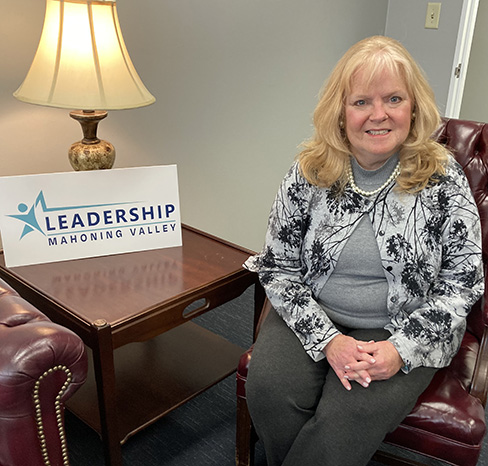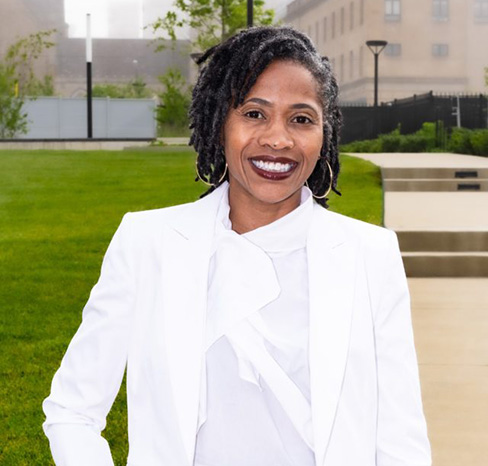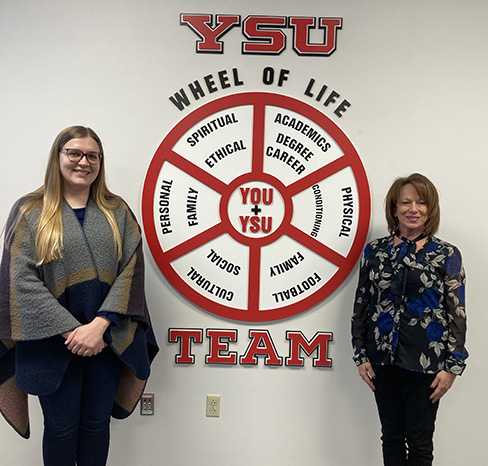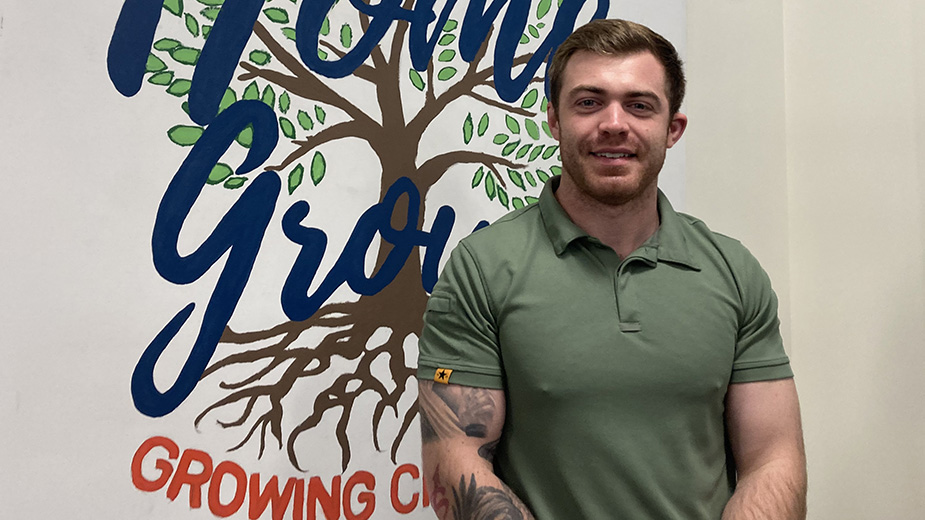YOUNGSTOWN, Ohio – An aging population in the Mahoning and Shenango valleys means a potential shortage of individuals to lead government, industry and organizations.
But several programs aim to stem that shortage by cultivating leadership across the demographic landscape.
Leadership Mahoning Valley, the Homegrown Initiative at Penn-Northwest Development Corp. in Hermitage, Pa., the Raymond John Wean Foundation in Warren and the James P. Tressel Institute for Leadership & Teamwork at Youngstown State University are some of the organizations addressing the challenge.
WHAT THEY DO
In September, Leadership Mahoning Valley began its first class since the pandemic. There are 43 class members across various industries and demographic groups, split between people who live and/or work in Mahoning or Trumbull County.

“The purpose from the beginning is to identify and cultivate emerging leaders in the community,” says JoAnn Stock, Leadership Mahoning Valley executive director.
The program helps participants develop the leadership skills necessary to succeed in their respective organizations.
“But it’s a community leadership program,” Stock says. “So ultimately, we want them then to come to use their leadership skills, the knowledge that they’ve learned about the community, to then become leaders in the community serving on boards, possibly running for public service.”
People are nominated, often by an employer, and complete a lengthy application to be part of the program. They must make a time commitment since the group meets several times in day-long sessions. Through the nine-month program, participants assess their leadership styles, learn about the community and develop a network among the group.
Community is at the heart of leadership cultivation at the Wean Foundation, too.

“For the Wean Foundation, it starts with an aspirational vision – empowered residents creating a healthy, vibrant, equitable, and economically stable Mahoning Valley,” Executive Director Jennifer Roller says in an email. “Our goal is to support nonprofit organizations, government entities, and academic institutions working to improve the quality of leadership and decision-making among staff, elected and appointed officials and members of boards and commissions in city, township and county governments in the Mahoning Valley.”
Jake Rickert is the director of workforce development at the Homegrown Initiative of Penn-Northwest. It targets and is run by young people, those younger than 35.
There are some 30 active members but meeting attendance fluctuates between 12 and 18 attendees, depending on the time of year.
“It’s all people very new in the career field,” Rickert says. “We’ve had great success doing that.”
Out of that grew the Future Leaders group, he says. It’s building the next generation of community leaders.
“It started off as a low-pressure future leaders group,” he says. “It became sort of a stepping stone that leads to some of these established committee and board seats.”
After serving on one of the Future Leaders committees, many go on to serve on boards of larger organizations and foundations.
“It’s bringing this fresh blood, fresh ideas that originated with the Future Leaders and the Homegrown, to other outside organizations,” Rickert says.
The Tressel Institute was formed to serve the needs of YSU students.
“Covid really had an impact on the students and everything from understanding healthy habits, to nutrition, stress management, time management and financial literacy,” says Jennifer Oddo, vice president of Division of Workforce Education and Innovation at YSU.
It’s aimed at younger students and involves what’s called a personal leadership certificate program. Students can earn badges in five areas: My Personal Journey, My Commitment to All, My Career Pathway, My Healthy Habits and My Financial Game Plan.
“I came from a working environment where we always worked with a lot of really exceptional leaders who went through MBA programs, went through leadership programs,” Oddo says. “But one of the things that drew me here to Youngstown State and working with Jim [Tressel] was he approached leadership differently.”
Often people forget about the importance of values in how leaders lead.
Demonstrating gratitude to others, showing commitment, serving the community and ensuring self care are important aspects of leading teams, Oddo says.
The first goal when the institute was established was to serve YSU students and 600 went through it last year. It’s also branched into programming for high school students. Those students are earning their graduation seals through programs at the institute.
They learn professional skills such as communication and critical thinking. “We’ve been interviewing a lot of companies in the region…to really understand what the leadership needs are,” Oddo says.
The institute is in the planning phases to develop programming for industry, she says.
LEADERSHIP CHARACTERISTICS
“I think oftentimes, the values of what makes a great leader, the things that come from within, are often missed in leadership development courses,” Oddo says.

The core principles of the Tressel Institute are selflessness, gratitude, excellence, love and hope.
“We don’t use enough of the word love because we’ve become so desensitized in a big corporate environment that we forget. … But you’ve got to love your team. They’re your family,” Oddo says. “It’s OK to show that.”
And it has to come from within, she says.
“You’ve got the theoretical side of leadership, which most leadership programs focus on,” Oddo says. “You have the practical side of leadership, which is the experiences that they gain. But again, we find that most programs fall short on developing the person from within.”
The Wean Foundation invests in public and civic sector leadership programs that aim to create effective and efficient nonprofit and government infrastructure, Roller says in the email.
“An example was the Strategic Partners Fellowship,” she explains.
“TNP [Trumbull Neighborhood Partnership], YNDC [Youngstown Neighborhood Development Corp.] and the Wean Foundation partnered in the launch of the first fellowship cohort with a broad and long-term goal to promote leadership development and racial equity in the nonprofit sector. The organizations were identified due to the makeup of their organizations,” Roller says.
Both organizations identified gaps in their leadership teams and created plans to address them.
“With mentoring, coaching and professional development, these leaders are expected to grow their leadership skills and capacity,” she says. “Following the fellowship, the organization agrees to institutionalize the position at which point they may apply for a new fellow.”
The Center for Nonprofit Fellowship at YSU is another way the Wean Foundation works to build community leadership. It was created in partnership with the university.
“Too often it’s the position that determines who’s a leader when it’s the integrity, courage, self-awareness, empathy, curiosity, vision, and accountability that I see in residents, neighbors and partners that encourages me to collaborate or follow their lead,” Roller says.
The foundation works with others who share its values of racial equity and inclusion, Roller says.
“Leadership development is a heavy lift and in the spirit of collegiality, the Wean Foundation would welcome the opportunity to partner with other leadership efforts,” she says.
At the Tressel Institute, students learn from guest servant-leaders who record videos. They also learn about networking.
“One of the key things we teach and it seems simple: goal setting,” Oddo says.
Peer coaches, who are YSU students, help those enrolled in the institute to stay accountable.
WHY WE NEED LEADERS
Rickert says cultivating leaders is important to the community. “We really need to work on building this next generation of leadership,” he says.
That’s important in both business and civic organizations.
“In Mercer County, our average age is about 50 years old,” Rickert says. “Some of these people who have been long-time business leaders and civic leaders, they’re getting ready to retire and those seats need to be filled by somebody.”
Getting young adults in early and introducing them to leadership roles provides them with the opportunity to continue the tradition of hard work forged by previous generations, he says.
“How we kind of build our mentors is this peer-to-peer mentoring,” Rickert says. “Some of these young adults are business leaders who have owned and operated businesses for 10 years.”
Others have been in the workforce for only a couple of years. By working with the more seasoned members, they learn and gain more confidence.
BORN OR MADE?
“I think a lot of it comes from your family and what is instilled with you and the desire to take on the challenges that are involved with being a leader, whether it’s on a high school baseball team from a young age,” Stock says. “But then I think that there’s additional leadership skills that can be developed and honed as you enter more leadership positions.”
Rickert agrees. “I think what really builds a leader is promoting the confidence to make good decisions, to make an educated decision and to really see the end goal and the vision behind the decisions they’re making,” he says.
He sees it regularly with the Emerging Leaders group.
People who join because they want to be involved in the community do become more involved and sharpen their leadership skills.
“In my opinion, to really build a leader, you have to give them the opportunity to fail,” Rickert says, to grow and make decisions on their own.
In recognizing his leadership, the Pennsylvania Economic Development Association in October named Rickert, 28, its 2023 Young Professional in Economic Development to Watch. He was nominated by Penn-Northwest. The award recognizes his economic development work and his “leadership qualities that have distinguished him as a future leader within the industry” in Pennsylvania.
Oddo doesn’t believe great leaders are born. It’s something you have to have the internal motivation and passion for, she says.
“It comes from wanting to serve something bigger than yourself,” Oddo says. “It comes from a place of wanting to serve others, wanting to be helpful to others.”
Some call it servant-leadership, she says.
“It’s coming from a different place. It’s not coming from a place of power or authority,” Oddo elaborates. “Leadership is about coming from a place where you can make everyone around you better.”
Pictured at top: Through the Homegrown Initiative at Penn-Northwest Development Corporation, Jake Rickert connects young adults to careers and the community.
